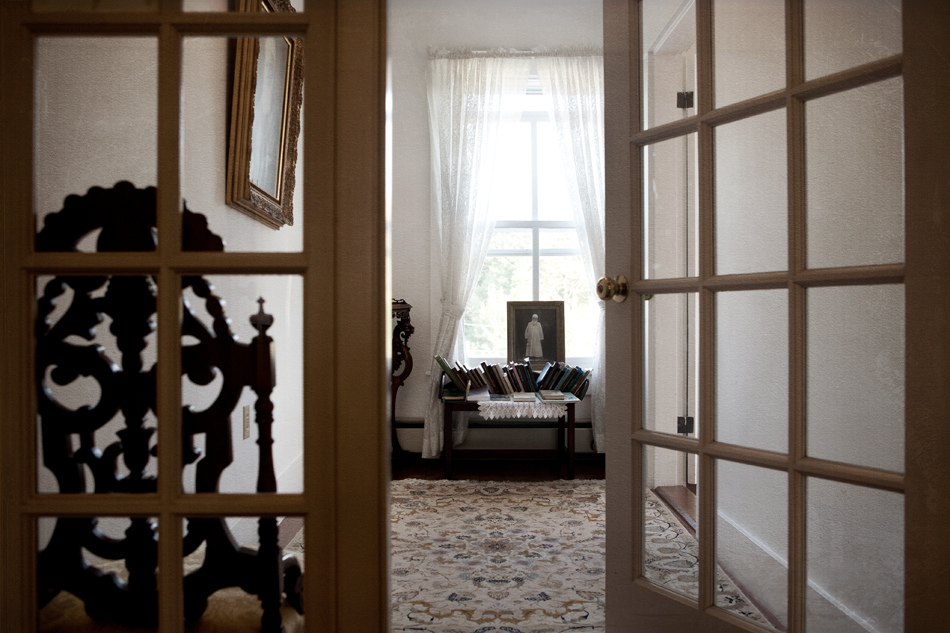Paris Talks Revisited: The Search after Truth
On 10 November, 1911 ‘Abdu’l-Bahá spoke about the first principle of Bahá’u’lláh’s Teachings: the Search after Truth. He explained the principle primarily in the context of religions claiming to be the exclusive keepers of truth and emphasized that we must let go of the external forms and practices of religion if we wish to start walking towards Divine Truth which is, in its Essence, One:
We must realize that these forms and practices, however beautiful, are but garments clothing the warm heart and the living limbs of Divine Truth… No one truth can contradict another truth. Light is good in whatsoever lamp it is burning! A rose is beautiful in whatsoever garden it may bloom! … Be free from prejudice, so will you love the Sun of Truth from whatsoever point in the horizon it may arise! You will realize that if the Divine Light of truth shone in Jesus Christ it also shone in Moses and Buddha. The earnest seeker will arrive at this truth.
When we look beyond the obvious ways in which we experience and live religion and examine all aspects of our lives, we must urgently ask ourselves, both individually and as a collective, “If all condemn one another; where shall we search for truth?” The Master defined the Search for Truth as a light journey. We are to leave behind several items if we want to reach our desired destiny: our own special conditions, preconceived ideas, prejudices, love, preferences, and sense of self. We should have an open, receptive mind, He said, letting go whatever we learnt before, and we must “not shrink if necessary from beginning our education all over again.”
The journey requires detachment, humility, emptiness and an openness towards fellow human beings and the Unknown. This may seem a tall order, yet it is the key to true freedom and true unity, and the prerequisites for finding The One Truth:
If our chalice is full of self, there is no room in it for the water of life. The fact that we imagine ourselves to be right and everybody else wrong is the greatest of all obstacles in the path towards unity, and unity is necessary if we would reach truth, for truth is one.



If they are all as well done as this peice, it will be a blessing, thank you. Great quotes, photo, and well-written. Concise, yet clear.
My translation of the last part of this talk, from the Persian in Khatabat-e Abdu’l-Baha (Talks of Abdu’l-Baha), Vol 1, pp 140-142:
For example, suppose there are five individuals, each of whom claims to be more learned than the others. They must attain to the station of earnest investigation. Until we abandon prejudice, how can we explain reality? [If] you as a Zoroastrian say, “I am in the right”, as a Jew you say, “I am in the right”, as a Christian you say, “I am in the right”, as a Buddhist you say, “I am in the right,” how could the truth become apparent? Therefore the Jew must abandon prejudice, the Christian must abandon prejudice, the Buddhist must abandon prejudice. Until they do so, the truth will not become apparent. To a person of sound understanding who seeks knowledge, knowledge is the object of his quest, whoever may set it forth; the light is his beloved, from whichever lamp it may shine; the rose is his beloved, in whichever soil it may grow. The sun is the greatest of God’s bounties, it rises from every dawning-place. We should have no prejudice, we should be lovers of the sun. The sun is the sun, whether it may rise from the dawning-place of Moses, or of Muhammad, or of Jesus. In the same way, the truth is what we all seek, whoever we may hear it from. This is the principle of the investigation of reality. The outcome of such a thorough discussion would be that all the communities of the world would let go of what they have heard, not cleaving to any community nor abhorring any community. For it could be that the community you abhor is in the right, and that the community to which you cleave is wrong. When you stand aloof from all, not cleaving to any community nor abhorring any, and then investigate truth, it will eventually be evident that the reality of the divine religions is one. The differences lie in imitations [of the past]. The result of the investigation of truth will be that all people will agree. This is one of the principles of Baha’u’llah. Tomorrow ….